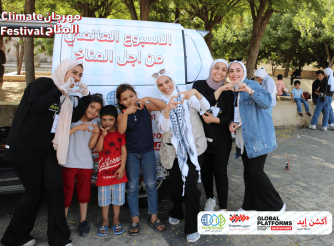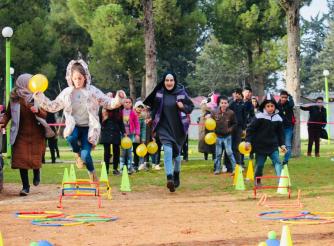Global change cannot be achieved without local change

Climate change affects everyone, but not in the same way. Some places face floods, others endure droughts – amidst a multitude of other challenges. This makes it difficult to agree on global solutions, which is why progress at the top can be slow. However, in an inspiring response, we’re seeing local groups and communities around the world stepping up to tackle their specific climate issues.
While their innovative ideas are conceptualised in order to target issues specific to their regions, the locally focused changes they’re creating could serve as a model for others facing similar challenges, offering insights that can be adapted and applied elsewhere. Let’s take a look at what this kind of from-the-ground-up climate action looks like in practice.
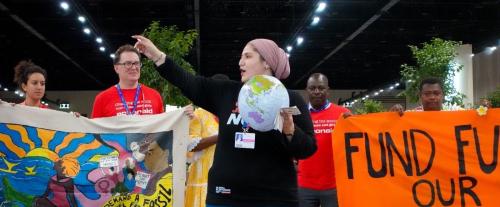
Take Rand Al-Khushman, an agricultural engineer and Jordanian youth activist focused on climate change justice. She holds a bachelor’s degree in water resources and environmental management, and serves as a programme coordinator for a global solutions program with IREX Jordan and Washington. She also coordinated the STEM Green Labs Program with IREX Jordan, empowering 20 teachers and 240 students across 10 of Jordan’s underserved public schools with multidisciplinary STEM and problem-based learning (PBL) skills to design climate change solutions within their communities.
Rand is also the leader and founder of Youth4Climate, an initiative funded by ActionAid Arab Region (AAAR) and Global Platforms (GP), ActionAid’s network for youth-led activism. The program raises awareness about climate change in Jordan through tools such as research, community street interviews and peer-to-peer training. Since young people are the most impacted group, they also conduct live talks on social media to reach and engage a wider audience. One of Youth4Climate’s main focus areas is improving the knowledge and awareness of local communities because, as Rand puts it, “Global change cannot be achieved without local change.”
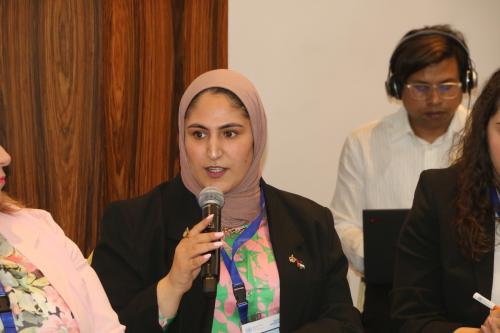
Rand goes on to add:
“I'm always encouraging young people in my community to be equipped with the skills and knowledge that will bring us the change of the present and future, as we will be the future leaders who lead the climate action. So let's start now because we don't have another country to live in; we must take responsibility for our country's nature, resources, and climate."
Rand’s approach highlights an important point: for environmental initiatives to have a lasting impact, it’s not enough for the community to simply be consulted. These efforts must be deeply connected to the community’s unique needs, with the people feeling a sense of responsibility and control over the outcomes. The goal is to empower them to take charge and lead the initiative themselves.
At COP 27 in Sharm El-Sheikh, Egypt, Rand stood as a passionate advocate for youth and gender equality in climate discussions. Representing the Global Platform, she made her voice heard at multiple press conferences, challenging decision-makers to take meaningful action on climate justice.
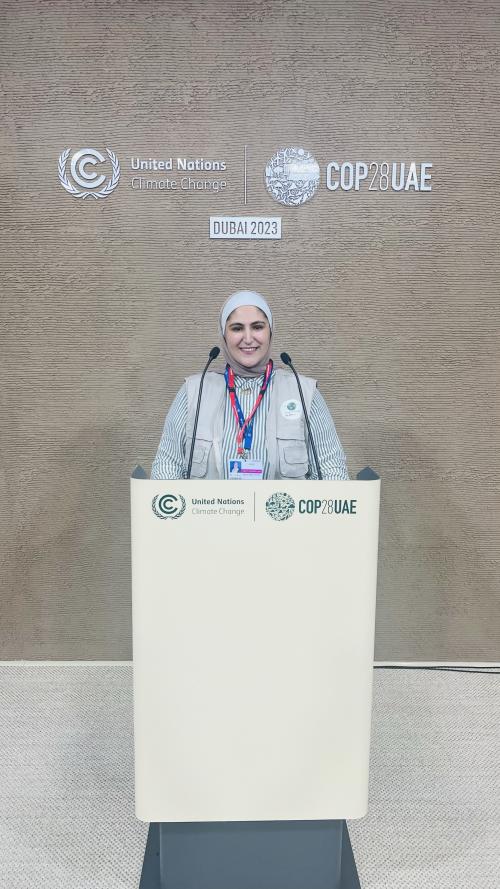
One of her most powerful moments came during a high-profile panel discussion, where she directly confronted policymakers about their commitments to climate finance for vulnerable communities.
With over 70% of Jordan’s population under the age of 30, Rand emphasised that young people must not only be present in climate negotiations, but they must also be part of the decision-making.
Beyond the conference, Rand took every opportunity to amplify Jordan’s climate issues. She gave multiple media interviews, speaking on national TV channels in Egypt as well as international outlets from Asia. Her goal was clear: to ensure that Jordan’s climate challenges, and the voices of its youth, were heard worldwide.
“Participating in global conferences like COP 27 made me realise that climate change knows no borders, it affects us all,” she says. “We can’t afford to wait. Youth will bear the brunt of this crisis, and we need to be equipped with the right tools to fight for the right issues. Awareness is the key, and every conversation, every protest, and every policy push matters.”
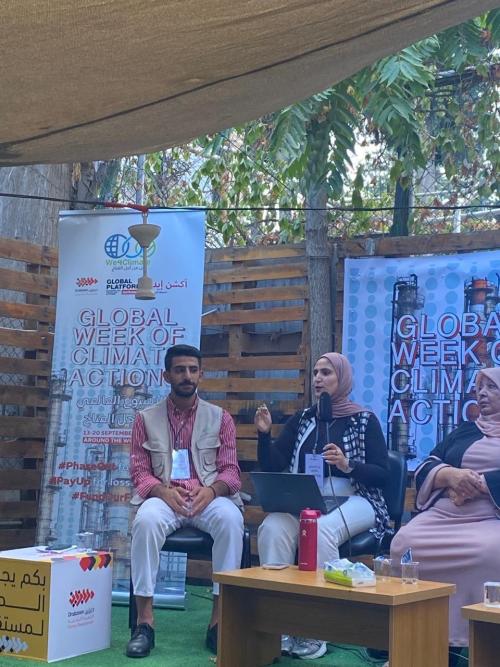
To protect the world we call home, action must begin at a grassroots level. By prioritising initiatives led by communities who understand their challenges firsthand, we believe we can lay the foundation for meaningful, lasting change.
Through our Humanitarian and Resilience Program (SPAII), AAAR is working to create societies that are more just, feminist, sustainable and resilient. One of our core priorities is to ensure that young people – especially young women and those facing marginalisation – can access a fair transition to a greener economy, helping them build climate-resilient livelihoods and securing a brighter future for all.
